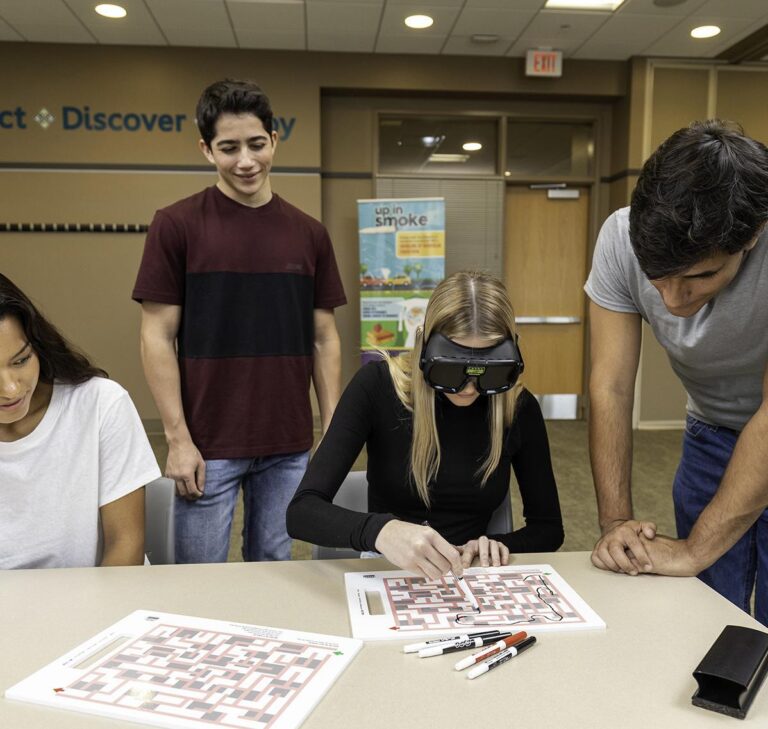Understanding the risks of driving under the influence of THC and how it impairs perception, reaction time, and decision-making.
 The rise of THC, the psychoactive compound in marijuana, presents a growing concern for road safety. It is essential to understand how THC affects driving abilities and the risks associated with driving under the influence. THC impairment has significant consequences on perception, reaction time, and decision-making, all of which are critical for safe driving. In this blog, we will explore the impact of THC on driving and emphasize the importance of education and awareness in preventing THC-related crashes.
The rise of THC, the psychoactive compound in marijuana, presents a growing concern for road safety. It is essential to understand how THC affects driving abilities and the risks associated with driving under the influence. THC impairment has significant consequences on perception, reaction time, and decision-making, all of which are critical for safe driving. In this blog, we will explore the impact of THC on driving and emphasize the importance of education and awareness in preventing THC-related crashes.
The Effects of THC Impairment on Driving Abilities
Driving requires focus, quick reactions, and clear judgment. THC impairs many of these abilities, making it dangerous to operate a vehicle with any THC in the system. It affects the brain by interacting with cannabinoid receptors, which play a role in cognitive function, memory, coordination, and motor control. As a result, drivers under the influence of THC may experience delayed reaction times, impaired coordination, and difficulty processing information quickly.
Even low levels of THC can cause impairments that make driving very dangerous. These effects can significantly hinder a driver’s ability to respond to unexpected situations, such as a pedestrian crossing the road or a car braking suddenly. This impaired response time can be the difference between avoiding a crash and causing one.
How THC Impairment Can Alter Perception and Reaction Time While Driving
One of the most dangerous effects of THC impairment on driving is its impact on perception and reaction time. THC can alter a driver’s ability to accurately judge distances, speeds, and the movement of other vehicles. This altered perception makes it more difficult to assess situations on the road, leading to potentially dangerous decisions. For instance, a THC-impaired driver may misjudge the speed of an oncoming car or overestimate the distance needed to stop, increasing the likelihood of a crash.
Reaction time is another critical factor in driving safely. Drivers need to respond quickly to changes in traffic, road conditions, and the actions of other drivers. THC slows reaction times, which can prevent drivers from reacting in time to avoid a collision. This delay in response, even by a fraction of a second, can have deadly consequences, especially in high-speed or complex driving environments.
The Risk of Crashes and Fatalities with THC Impairment
The risk of crashes and fatalities increases when drivers are impaired by THC. Studies show that drivers under the influence of THC are more likely to be involved in a crash compared to sober drivers. THC impairs cognitive and motor functions, making it harder for drivers to concentrate on the road, stay in their lane, or make safe driving decisions. The combination of impaired judgment, delayed reaction times, and altered perception creates a dangerous situation for everyone on the road, including pedestrians, cyclists, and other drivers. Driving simulators like SIDNE Vehicles or Roadster Pedal Karts paired with impairment goggles are a great way to safely educate students about how impairment affects driving abilities.
The Responsibility of Drivers to Avoid Getting Behind the Wheel While Impaired by THC
Driving is a responsibility that requires full mental and physical capabilities. Just as drivers must avoid alcohol impairment, they also have a responsibility to avoid driving under the influence of THC. Individuals need to wait until they are no longer impaired before getting behind the wheel. By choosing not to drive under the influence, drivers protect themselves and everyone else on the road.
The Role of Education and Awareness Campaigns in Reducing THC-Related Crashes
Education and awareness campaigns play a crucial role in reducing THC-related crashes. These campaigns help inform the public about the dangers of driving under the influence of THC and encourage responsible behavior. As cannabis becomes more widely available, it is essential that people, including students and young adults, understand the risks associated with THC impairment and driving.
There are many tools to help educate about THC impairment. Fatal Vision THC Goggle Kits simulate the effects of THC by altering the wearer’s visual perception and impairing their coordination and reaction times. Fatal Vision Polydrug [Alcohol & THC] Goggles are a great tool to educate about the risks of mixing alcohol and THC.
Public health organizations, government agencies, and advocacy groups have launched various initiatives to raise awareness about THC-impaired driving. These campaigns aim to change attitudes toward driving under the influence and to make it socially unacceptable, similar to the efforts that have reduced drunk driving over the years. Education campaigns often highlight the legal consequences of driving while impaired, as well as the potential for causing serious harm to oneself or others.
The Consequences of Causing a Crash While Impaired by THC
The legal and personal consequences of causing a crash while impaired by THC can be severe. Driving under the influence of THC is illegal. Legal consequences are designed to discourage impaired driving and to hold those who do drive under the influence accountable for their actions.
Beyond the legal ramifications, causing a crash while impaired by THC can have long-lasting emotional and financial consequences. These potential consequences underscore the importance of making responsible choices when it comes to cannabis use and driving. It’s important to share these consequences with students and young adults in a meaningful way, like sharing stories or statistics.
The Long-Term Effects of THC Impairment on Driving Skills
THC impairment not only affects immediate driving abilities but can also have long-term effects on driving skills. Regular cannabis use can lead to chronic cognitive impairments that persist even when a person is not actively under the influence. These long-term effects can include difficulties with attention, memory, and decision-making, all of which are critical to safe driving.
Driving under the influence of THC poses significant risks to road safety, with impaired perception, reaction times, and judgment leading to an increased likelihood of crashes and fatalities. It is the responsibility of drivers to avoid getting behind the wheel while impaired by THC and to understand the long-term impact that cannabis can have on their driving skills. Education and awareness campaigns are essential in helping the public understand these risks and in preventing THC-related crashes. Incorporate Fatal Vision THC Goggles paired with a Roadster Pedal Kart or SIDNE Vehicle into your educational programs to make a lasting impact on your students’ driving safety.





 The rise of THC, the psychoactive compound in marijuana, presents a growing concern for road safety. It is essential to understand how THC affects driving abilities and the risks associated with driving under the influence. THC impairment has significant consequences on perception, reaction time, and decision-making, all of which are critical for safe driving. In this blog, we will explore the impact of THC on driving and emphasize the importance of education and awareness in preventing THC-related crashes.
The rise of THC, the psychoactive compound in marijuana, presents a growing concern for road safety. It is essential to understand how THC affects driving abilities and the risks associated with driving under the influence. THC impairment has significant consequences on perception, reaction time, and decision-making, all of which are critical for safe driving. In this blog, we will explore the impact of THC on driving and emphasize the importance of education and awareness in preventing THC-related crashes.
